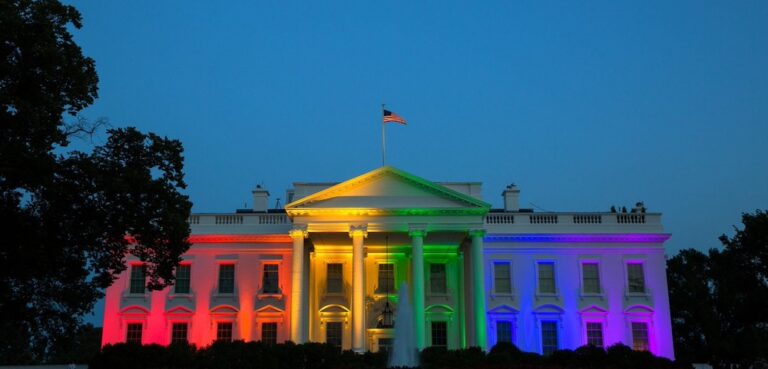
The mainstream queer movement is really frustrating me at the moment.
For me, the queer movement is born in the idea of fighting against the way society decides we should conform sexually and the sexual labels placed on us. It is about sexual liberation much more than it is about equality. It is about fighting against the systems in our society that oppress members of sexual minorities.
In doing so, it is an inclusive movement. It encompasses anyone who doesn’t identify with traditional heterosexual labels (and even many of those who do).
Yet, something is happening in significant parts of the queer movement and I don’t like it. I am now seeing major queer organisations and queer activists develop exclusive habits, excluding those who they think don’t fit the mainstream gay and lesbian model.
For example, after some publicity around the issue, marriage advocates from Australian Marriage Equality (AME) and the Greens recently game out strongly against the idea of polyamorous marriage. In commenting on the position, Alex Greenwich said AME’s concept of marriage was of “two people who rely on each other in a relationship to the exclusion of all others”.
Earlier this year in the United States, Sex and the City star Cynthia Nixon came under huge fire because she stated that for her, her sexuality was a choice.
Nixon was discussing her engagement with her female partner of eight years (they married recently) and stated, “I understand that for many people it’s not, but for me it’s a choice, and you don’t get to define my gayness for me.
“A certain section of our community is very concerned that it not be seen as a choice, because if it’s a choice, then we could opt out.
“I say it doesn’t matter if we flew here or we swam here, it matters that we are here and we are one group and let us stop trying to make a litmus test for who is considered gay and who is not.”
Many activists reacted poorly to Nixon’s comments, saying she is giving fodder to conservative activists and that she should just ‘come out’ and say she’s bisexual.
These two examples are part on an ongoing problem with the queer movement where people who don’t fit into the mainstream queer mould are being excluded from the debate, with claims that they are ruining our chances to reach equality. They are the victims of all-consuming campaigns around issues such as same-sex marriage.
What’s happened? The institutional queer movement has become dominated by upper to middle class wealthy queer activists, who have populated organisations and put significant money behind the movement. The struggles that face this group are very different from those of other people.
Buoyed by the privilege of wealth and class, this group has focused on gaining acceptance into the structures the queer movement should be fighting to overturn. Campaigns have now become focused on fighting for acceptance into the heteropatriarchal society. Fights for equal marriage, for the idea that homosexuality is not a choice, and even for the idea that we should be striving for equality as our end goal have become about ensuring a select few get equal access to heteropatriarchal systems.
The problem with this is that the heteropatriarchy is inherently conservative. As a male heterosexual-dominated social structure, the heteropatriarchy is designed to develop labels and force people to conform to sexual norms. As long as it exists, people continue to suffer.
And that is what we are now seeing by the mainstream queer movement. Those in the minority (based on wealth and influence) of the movement are being pushed aside as the wealthy middle class fights for its acceptance into the heteropatriarchy and for equality.
People are told they need to conform to ‘family values’ and we begin to try and hide the ‘scary queers’ who may harm the rest of the movement.
As we do this, we lose the idea of liberation, and create a world where instead of one acceptable label (heterosexuality) we now may have two, if we are lucky (heterosexuality and homosexuality).
As the queer movement continues, it seems as though we are losing everything that is worth fighting for. I feel ashamed every time I see a mainstream queer activist tell me that someone isn’t part of our movement, or that their choice and the labels they place on themselves are not acceptable.
If we want to achieve anything real, we need to return to the liberation roots of the queer movement. Queer activism is not about obtaining access to heteropatriarchal structures, but about sexual liberation.
If we keep going the way we are, we’ll lose everything that was ever worth fighting for.
INFO: Simon Copland works and studies in science communication at ANU. He has strong interest in political movements, with a particular focus on the environment and queer movement. He is the political editor of ACT queer magazine FUSE. He is the convenor of the ACT Greens and a US politics nerd. Follow him on Twitter @simoncopland.
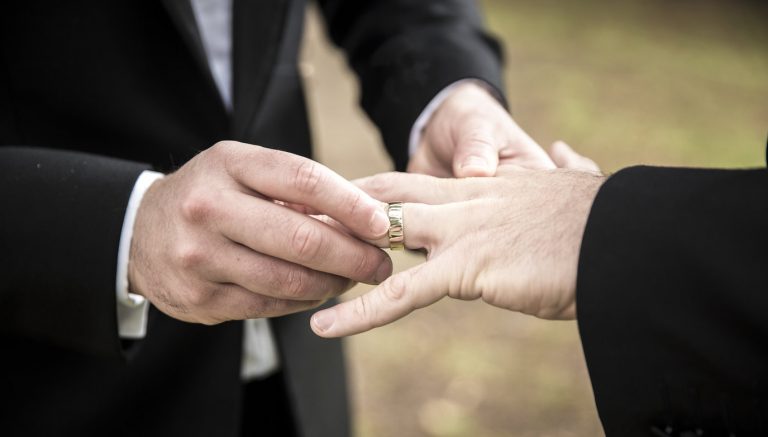
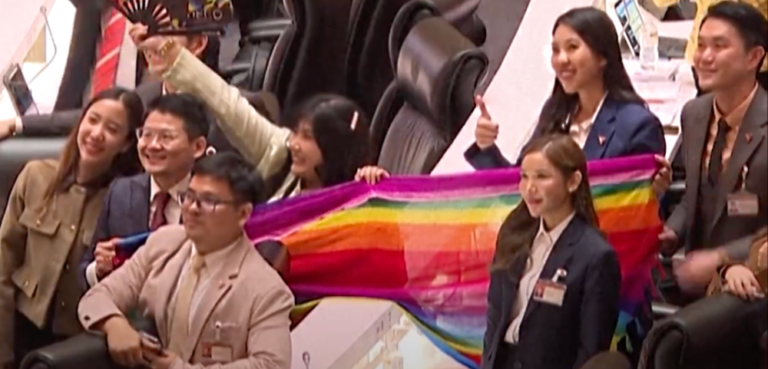
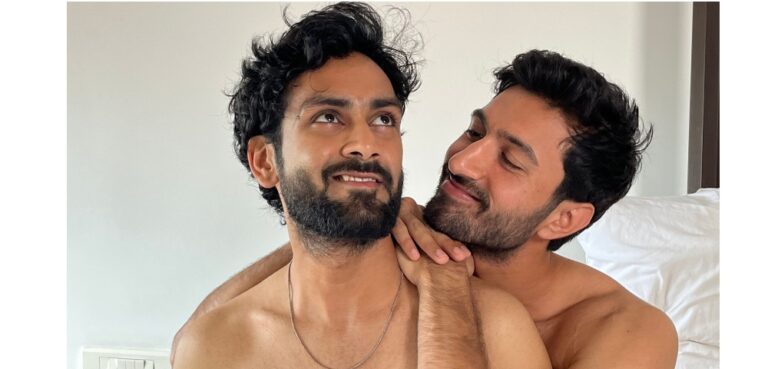

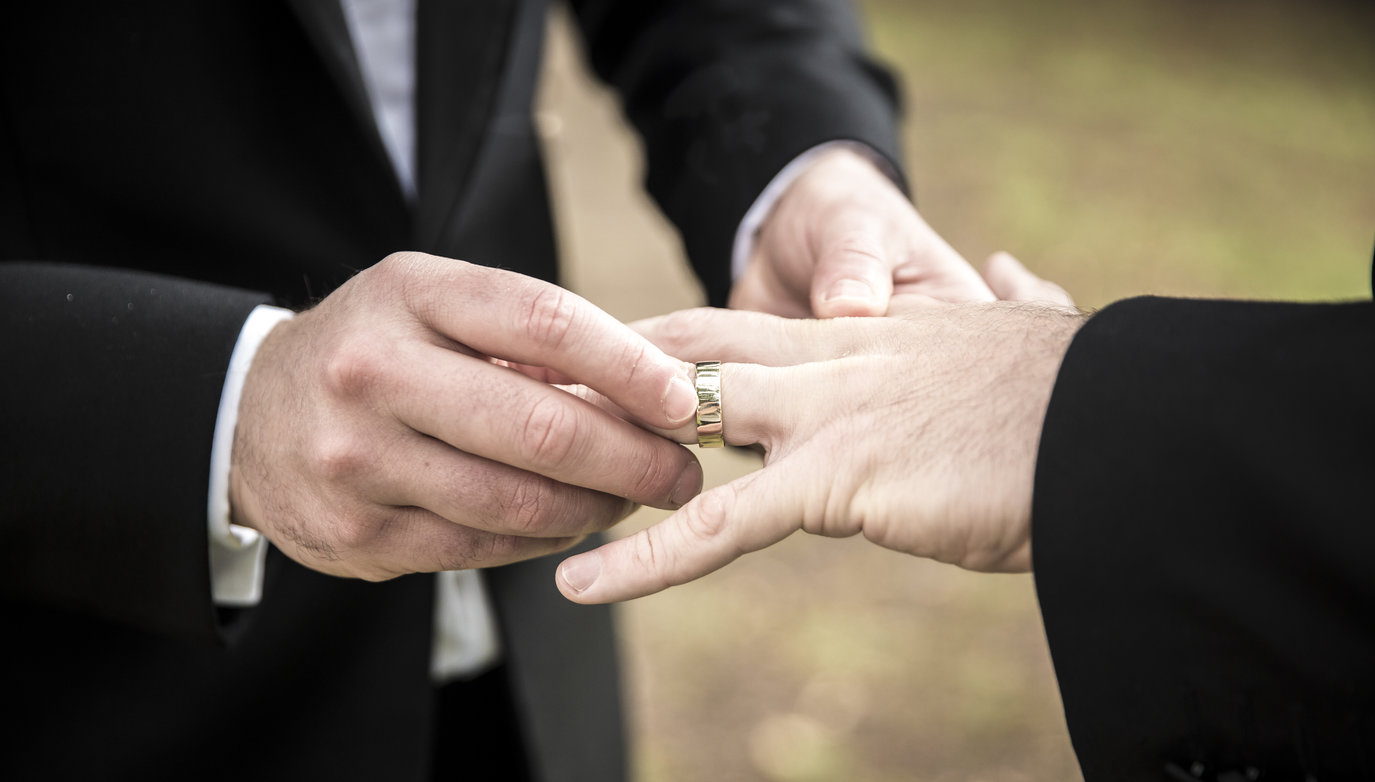
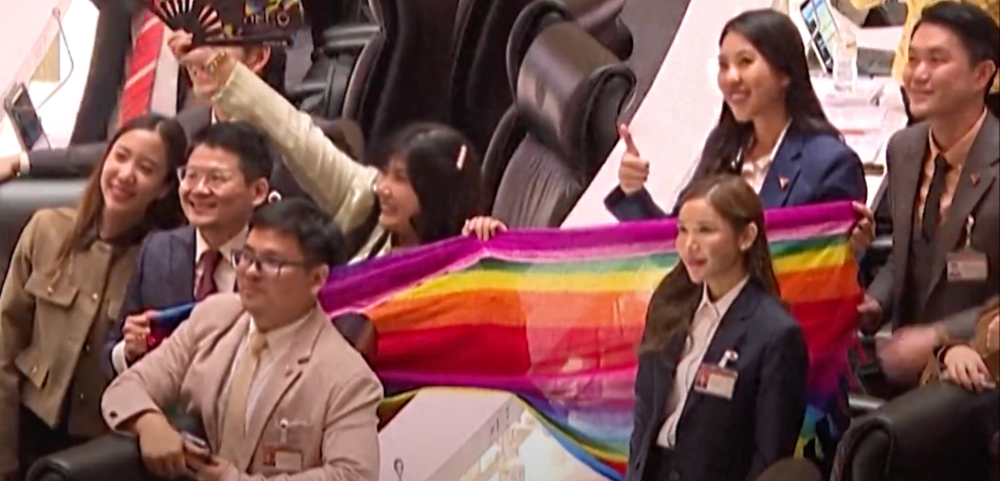
[…] example he argues that the LGBTI movement has liberationist roots which marriage equality somehow […]
[…] roots, over the past couple of decades much of the lesbian and gay movement has become more mainstream, and in turn more conservative. It’s moved primarily onto campaigning for same sex marriage — […]
[…] movement: sexual liberation and the destruction of the family (see Simon Copland’s blogpost and Star Observer […]
Hi all,
Thanks for the comments on this piece. I really do appreciate the views on the article.
I’m sorry I haven’t responded to people yet – I have had a crazy busy week. However, instead of replying to each comment individually I thought I would build on the piece and respond to the comments in a blog piece.
I hope this builds on the discussion a bit – interested to hear more of people’s thoughts. http://simoncoplandblog.wordpress.com/2012/06/24/responding-to-comments-on-we-need-to-return-to-our-liberation-roots/
Cheers,
Simon
555Sean, excluding the possibility of same-sex marriage from our relationship choices is not liberation or libertarian at all but the stealthy shadow of dictatorship. Giving people the equal choice of marriage, that they can freely exercise *if they want to*, is exactly that: an individual free choice. Whether seen as a conservative, mainstream, or conformist choice or not is actually beside the point.
We need to ask why does the government have an astonishing 1084 laws that reference the Marriage Act, giving special rights and protections to those it says “Married”. There was a time Marriage belonged to the couple getting married, not some rotton power hungry bitch like Tony Abbott or Julia Gillard. Who the fuck are they to your family and friends? You do not know them, chances are you do not like them, yet they are acting like a jilted ex lover? This is about strangers demanding control over the most intimate parts of your life.
A liitle heavy on jargon for me but otherwise the article is a breath of fresh air.
Marriage is not progress. Never has been. Its meaning and purpose have diluted over the years so for many same-sex marriage is the last nail in the coffin. Those conservatives and Christians protecting marriage make a lot more sense than gays setting it as a benchmark of equality. In the 21st century we should be saying tt’s none of the governments business. It’s all very well to say you don’t want others defining your gayness for you but to then say governments should be defining our relationships to the point of issuing licences is contradictory and – speaking for myself – quite insulting.
Great article, finally someone is talking some sense. Couldn’t agree more.
The “Gay” community have fought long and hard to be accepted within society over many years. To the point, most people today (heterosexuals) are happy for us to live our lives openly and in harmony. This is the liberal way, live and let live. As a gay man I endorse libertarianism as it covers all people, regardless of political values with the emphasis on the individual.
I find it difficult to see the gay community being torn apart from within over the “equality” issue. The original aim was to be “liberated” and not have the social values of mainstream society foisted upon us.
The marriage debate is a rocky road toward alienating those in the Gay community who do not relate to traditional values and are more than happy to “come out” and be proud. There is nothing wrong with being different; embrace it.
Simon, to requote Cynthia Nixon: “You don’t get to define my gayness for me”. Tired, social reductionism is the most elitist game around. Since when is relationship commitment sole property of the “wealthy middle class”? In pursuit of ideals (which – as purists on both right and left fail to notice – won’t be excluded by others achieving a basic right), you support perpetuating second-class citizenship for the average Joe/Jane LGBT who just wants a right that their straight siblings have. By all means, pursue polyamory or whatever you like, but don’t waste everyone else’s time pitting arcane idealism against basic legal rights.
Stop telling me how to be queer.
What an elitist. He is criticising people who are doing concrete work but not proposing any alternatives. The majority of Australians, the majority of gay Australians, and the majority of working class Australians support gay marriage, so who is being “middle class”? There’s nothing more “middle class” than working in the university, talking about how “radical” he/she is all the time, and looking down upon ordinary people.
In history many if not most campaigns for equality focused on finding common ground with mainstream laws and customs. There’s nothing I see coming from AME which goes against that trend. Keep in mind that the focus here is on achieving marriage equality — nothing more and certainly nothing less. Once equal rights are achieved you’ll still be able to decide whether you wish to participate in marriage, or not. For most people the issue at hand is about simply removing legalised discrimination and giving every LGBT person the same rights and entitlements as their hetero brothers and sisters — nothing more and nothing less.
Isn’t there an irony in your argument? You say the upper wealthy middle class are excluding sexual liberation activists because they do not fit the structures they are fighting for, yet your solution is to exclude the upper middle class because they don’t represent sexual liberation. It’s par for the course in any activism regarding equality to show how similar both opponents are so that you can argue the injustice of inequality. Just like anti marriage equality activists exclude welfare families, drug addict parents, criminals etc from the debate to portray a nuclear family friendly argument, we need to portray stable, unoffensive and “hetero-like” relationships to satisfy a backward portion of the population that our relationships are the same as theirs. This would make it easier for equality to be achieved but does not mean that people are anti-sexual liberation. Putting a Julian Clary in the foreground wearing an “I love fisting” t-shirt would be counter productive so we “hide” it from view, but that does not mean we are not fighting for his rights too.
Hear hear!
This is what this (maturing) gay person has been observing and proferring my thoughts on for some YEARS!
Good to read that it being raised!
This article is ridiculous. All those lefty student protests lead to nothing – the people in government change the law, not people in protests. If you want equality you have to engage with those politicians, opinion makers and influencers.
Once you get out of uni you will understand.
I think that you also need to acknowledge that some of us just aren’t radical queers. In terms of getting married and holding certain ‘family’ values – that doesn’t make me a slave to the heteropatriarchy. I’ve never been more certain than ever that my marriage is what I will make it, with full recognition that I am gay and that I will always be proudly different.
I don’t want marriage personally but I support the legal right for all and do not see any threat to the rights of others to be who they are. The push for marriage equality is about making same-sex marriage legal, not criminalising (or legalising) any other conduct.
It seems a bit of a double standard for the author to claim marriage-supporting queers are exclusivist when he then goes on an classist rant against an apparently overbearing cabal of “upper to middle class wealthy queer activists” subverting the freedoms of marginalised queers who he makes out as ‘victims’ or ‘collateral damage’ of the marriage equality movement. This fails to decently describe the many human beings putting their hearts and souls into this equality fight; and from what I’ve seen, the push for marriage equality has engaged the hearts and minds of people from all walks of life.
I had trouble discerning exactly what Simon proposes as the answer, let alone any material evidence of what he has construed as “the problem”, apart from hand-waving and broad allegations of “people” being “told” and what “we” are doing.
Does he suggest that the fight for marriage equality be abandoned? That people who don’t agree with polygamous marriage (or prefer to focus on the issue at hand rather than the strawman being put up by opponents of equality) should be silenced? That the marriage movement should openly fight for polygamous marriage? What is he saying, exactly?
The far left and far right have made the strangest of bedfellows when it comes to their mutual antagonism towards marriage equality.
While I agree with the author that it should be about full liberation and that the entire spectrum of sexuality should be accepted; I do think it is naive to believe that us in the LGBT community (or any other civil rights group for that matter) can directly change the status quo with out having participants in it. I do feel we have made progress and a major part of that progress is having influential people capable of being an advocate for progress/change (not revolution–for it would likely fail). I do not find this concept wholesome or even right, but as a pragmatist, I find it reality. I do applaud the author and those vocal, regarding the issues stated, because if they were simply ignored or silent then progress would halt. And I do not think anyone wants that! I just wish things moved faster sometimes have to step back and tell myself that the world is not black and white, but a many of shades-of-gray.
The fact that we’ve moved beyond ‘liberation’ and are now demanding our place at the table, our position in society, shows that we’ve become more sophisticated. We’re not adolescents ranting and raving against conformity and the establishment – we’ve arrived at a place where we don’t have to shout and bang on windows. Embrace it!